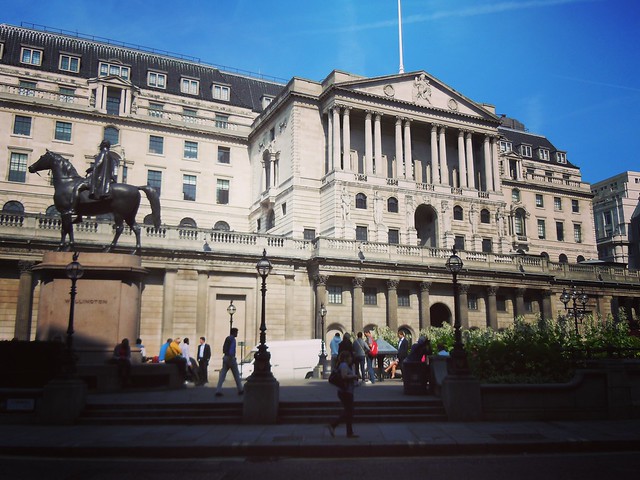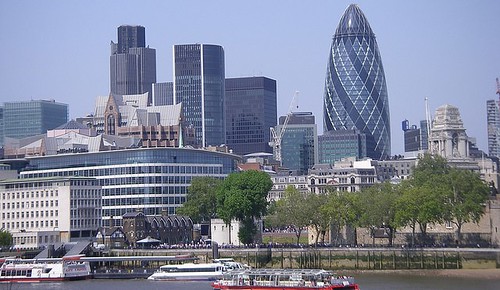Is the proposal for a Universal Basic Income more a tool to consolidate political power and less an act of altruism and humanity?
 //embedr.flickr.com/assets/client-code.js
//embedr.flickr.com/assets/client-code.js
I have been thinking about the general issue of the Universal Basic Wage long before the idea of a Universal Basic Income was first mooted. I was pondering about the impact of increased, and ultimately comprehensive, automation of the productive process as well as the impact of artificial intelligence (AI). What would such a society look like? What would be the socio-economic and indeed the political implications of this?
It would certainly put the Marxist question about the ownership of the means of production into stark focus. It would be a world with minimal work for the mass of the population and consequent mass unemployment. It would also be a world where the means of production would be completely owned by a tiny minority. What would the ‘owners’ do to forestall the predicted Marxist Revolution.
The worst case scenario, for them, would be sharing the rewards of the productive process evenly throughout the entire population with them getting their equal share as individual members of society. Not the best outcome for them at all.
The second option would be to throw the masses enough crumbs to meet their basic needs and keep them happy. This of course could be called a Universal Basic Income for all. It would appear to be a selfless and indeed benevolent act on the part of the elite, even though it would be in effect robbing the average citizen of their ‘fair share’. It would also ensure that they would still have a population to serve their needs and their egos as the ‘Downton Abbey’ staff of the future. After all, what good is it to be rich if you cant ‘lord it over’ your fellow citizens.
Of course, the owners of the means of production could increase their dominant share still further by implementing policies that encourage a reduction in the size of the population. This would mean that the budget for the Universal Basic Income would shrink in proportion to the success of the policy. They would need to have a cover story though, perhaps that would come from a concern for the environment.
The 17 Sustainable Development Goals of the UN’s Agenda 2030 seem eminently progressive and humane. Again, this might appear to have altruistic motivations, but can you be certain that it is not also driven by cold self interest? The same applies to The Great Reset put forward by the World Economic Forum, the organisation that appears to represent to one percent that will probably become the ‘owners of the means of production’ in our automated future. Somehow I cant see them in the position where they ‘will own nothing and be happy’.
There is much talk of sustainability from the mouthpieces of the one percent. However, if this was really true our tax systems would be penalising consumption of the world’s resources. Economic policies such as interest rates close to zero or indeed negative interest rates coupled with quantitive easing that encourages inflation certainly encourages people to spend their money on consumption as a matter of urgency.
Recent moves to research Central Bank Digital Currencies (CBDCs), with the potential to program your money with an expiry date in order to encourage consumption does not point to a mindset focused on sustainability. On the contrary, it points to trying to squeeze even more out of the existing economic system that has been failing and continues to fail. Perhaps this is just to buy time for the one percent to consolidate their position on the eve of mass automation.
In this context, can we conclude that the proposal for a Universal Basic Income is just a political tool to consolidate political power into the hands of a tiny few? It is a modern example of bread and circuses used to preserve and indeed increase the status and privileges of the emerging global aristocracy?





